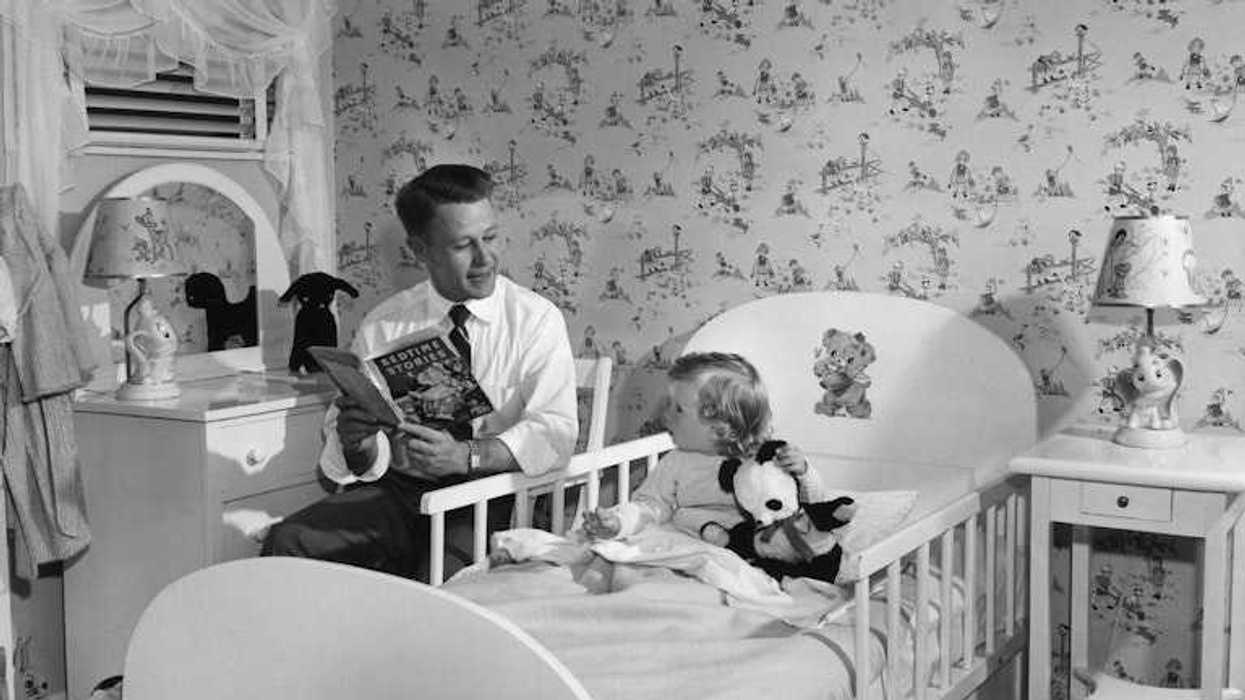This content is brought to you by GOOD, with support from IBM
An inviting pop of orange on the corner of Bruno Street in Los Angeles’ Chinatown invites patrons into Homegirl Café. During breakfast hours, plates of chilaquiles are being served up alongside fresh baked goods. In short order, however, it’s apparent this is no typical café. Indeed, a daily gathering is taking place in a lobby adjoining the café. This is the headquarters of Homeboy Industries, an organization that serves high-risk, recently incarcerated and former gang-involved youth through counseling, education, tattoo removal, legal services, job training and job placement. As usual, the morning meeting is standing room only.
How did this ray of hope come to be? “People walk into Homeboy’s headquarters and ask, ‘How did you conceive of this?’ all the time,” says founder Father Gregory Boyle. “The answer is, I didn’t. It was a communal effort. Everybody was trying to come up with a sensible response to this enormously complex social dilemma.”
The dilemma to which Boyle is referring is staggering, as evidenced by the following statistics from the Department of Juvenile Justice:
“Los Angeles remains at the forefront of gang violence, with 75 percent of youth gang homicides in the state of California occurring in Los Angeles County.”
“Young people (under age 35) are five times more likely to be victims of crime and violence than adults.”
Back in 1988, while was serving as pastor for Dolores Mission in Boyle Heights, Boyle confronted statistics like these on a personal basis, and the stark reality of them spurred him to make a change in his community. “The fact that I was burying kids as a pastor of a very poor parish, simultaneous with the fact that we had lots of middle school-aged gang members who had been given the boot from their schools and nobody wanted them, led to the beginning and evolution of Homeboy Industries,” he explains.
That year, Dolores Mission and Boyle started a school for at-risk youth. Next, a jobs program, Jobs for a Future, was established. “We tried to locate employment for gang members,” says Boyle. “By 1992, we were creating jobs for gang members, first, through our bakery, then, a month later, Homeboy Tortillas.” Boyle knew that for ex-gang members, a job was the best way out of their street life. Along the way, there have been the successful launches of several businesses from silkscreen/embroidery and merchandise facilities to the café, a diner and farmers’ market kiosks. Also in the mix – a solar panel training and certification program. These aspects of the program has been vital, thus one of Homeboy’s mottos: Nothing Stops A Bullet Like A Job.”
A lot has happened for Homeboy Industries over the years (it celebrates its twenty-fifth anniversary is in 2013), including moving locations four times. The increased size of venues signifies the program’s growth from serving an initial 3,000 clients to its current 15,000 participants per year. In addition to the aforementioned offerings, available to clients are case management, a court-mandated domestic violence batterers intervention program and twelve-step meetings. There are hopes, too, for adding childcare, transitional housing and food insecurity services to the roster.
As one might suspect, Homeboy’s journey hasn’t been without obstacles. “The very first thing was the wholesale demonizing that took place in those days when Homeboy was just beginning—the kind of a friend of our enemy is our enemy,” remembers Boyle. “If gang members were demonized, then it was a short hop to demonize me for helping them.” The result was that Homeboy Industries and Boyle regularly received death threats, hate mail and bomb threats. Says Boyle, “Now the place has quite changed in terms of being embraced by the city in general as a sensible way to proceed.”
Still, Homeboy has barriers to overcome, like finding employment for those in the program with criminal records. Another daunting hurdle – funding. Operation costs run $14 million per year, only 40 percent of which comes through the organization’s businesses. “People are always surprised, like if you need money to run the largest gang intervention rehab and re-entry program in the world there must be something wrong,” says Boyle. “We have to do battle with that kind of crazy thinking.”
And just what is Homeboy’s battle strategy? Says Boyle, “Along with being of concrete help to people who walk through our door, Homeboy Industries is announcing a message to the world of, ‘What if we invest in people rather than just seeking to incarcerate our way out of this problem? What if we were to begin to imagine a community of kinship touched by God where people recognize we belong to each other?’”
As far as statistics that have arisen from Homeboy’s program, here’s one that makes people take notice: Homeboy has a 70 percent retention rate in its services as compared to other programs in which the average retention is about 20 percent. As a result, programs from around the country have come looked to Homeboy Industries as a model. “We’re hoping to convene the programs next year to share notes and practices,” says Boyle. “Then, who knows, maybe it becomes a network that has some teeth that can help shape policy.”
As for Homeboy’s impact on Boyle, he says it’s changed his life. “In the end, [these participants] saved my life. When I need patience, they save me from my impatience. When I’m lacking courage, they save me from my cowardice. If there’s any saving that happens here, it’s completely mutual.”
For others who seek to undertake a seemingly insurmountable project, Boyle draws on personal experience. “As for me, I just tried to do the best I could, to be humble, listen at every step and respond.”
















 Otis knew before they did.
Otis knew before they did.